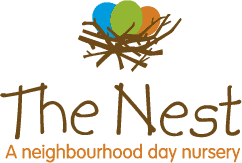Transition into Reception Class at School
Well being
For a child entering a new environment can be distressing. Separation anxiety can affect bothparents and child, so all the family needs support. The child’s key person will give support and help. Children need to be allowed to express their emotions. At nursery we have an ‘emotion basket’ with different books and objects to support mental well being, for example, emotion spoons (different emotions shown on the spoons), bubbles, sensory tubes, squishy sensory balls, pebbles, calming music etc. Children will be helped to build their confidence and self esteem. Activities are implemented, we have a school uniform basket for dress up, a previous nursery child comes into the setting to give a ‘chat’ about all things school. The nursery has a lot of books about going to school, after these are read the children are asked if they have any questions. The key person will seek support for families if needed, this may be in the form of leaflets to asking our early years advisor for help.
Physical support
The key person will support and encourage the chid’s independence, for example using the toilet, washing their hands as well as putting their shoes and coats on; doing up zippers and buttons.
Communication and language support
Can the child ask for what they want and express their needs, does the child have additional professional support, for example speech and language therapist. Does the key person have any concerns.
Visits
Finding time for Reception class teachers to visit and liaise with practitioners is essential to ensure that continuity is provided. The child’s key person plays an essential role in transitions as they have a wealth of knowledge and information about their children. The school will often contact the parents to arrange school visits, some schools come to the nursery setting to observe and get to know the children and to have time to discuss each child individually with their Key Person. Parents often need to know what a day in their child’s life will look like, what will they be doing/learning. Stay and play sessions can be very supportive for both the child and parents/carers. It will also help parents/carers to understand the importance and value of play and how learning takes place in the Reception environment. The practitioner sometimes can visit the school, they may do this with their key children. Teachers often will visit families in their own home.
Learning Journals and reports
These are to share and celebrate learning both at home and in the setting over a period of time. A leavers report will be written by the key person. The class teacher can use this information to plan for children based on their interests and stage of development. The information contained in the Learning Journal can also be used as evidence for the child’s Early Years Foundation Stage profile.
Inclusive practice
Ensure children and their families with disabilities are reassured and feel fully included. For children with Additional Educational Needs the school may have to plan well in advance in order to put in place everything that the child requires in order to make the best school start possible!
It is important that opportunities are provided for all the agencies involved with the child to share information with the school and for the nursery setting to give the school all relevant information on the child. Have inclusive practice; a child may have English as an additional language and/or newly arrived in the country, other groups of children that may need extra support, these may be foster children or traveller communities!
Good links between schools and nurseries/pre-schools throughout the year are the most effective way of meeting all children’s needs during transitions.
